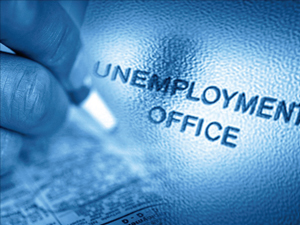Wealthy reap rewards while workers lose
By Adrianne Appel | Last updated: Jul 23, 2010 - 9:09:31 AMWhat's your opinion on this article?

Graphic: MGN Online
|
The riches of the wealthiest North Americans grew by double digits in 2009, primarily from interest their money earned when it was invested in the stock market and elsewhere, according to a report by the Boston Consulting Group.
Millionaires in the U.S. and Canada saw their wealth increase 15 percent in 2009, to a total of $4.6 trillion, the report found.
Worldwide, 11 million—or less than four percent of all households—were millionaires in 2009. They owned about 38 percent of the world's wealth or $111 trillion, up from about 36 percent in 2008, according to Boston Consulting Group.
About 4.7 million millionaires live in the U.S., four percent of the population and more than anywhere else in the world.
Their fortune is a stark contrast to the lives of more than 15 million people in the U.S. who are unemployed and searching for work, and the eight million more who are just getting by with a part-time job, according to the U.S. Bureau of Labor Statistics. More than two million more people were working prior to the recession but have now dropped out of the labor force.
Apart from the newly unemployed, about 39 million people in the U.S. are chronically poor and do not have enough food to eat, according to the U.S. Census and U.S. Department of Agriculture.
“The nation's jobs crisis is so catastrophic that, unless Congress acts on the scale of the New Deal, millions of Americans will experience extremely long periods of unemployment for many years ahead,” Lawrence Mishel, president of the Economic Policy Institute, told a panel of the Committee on Ways and Means recently.
Not so for millionaires and the uber-rich.
The uber-rich, those with more than $30 million, are on the rebound. They spent more money in 2009 on fancy cars, yachts and jets compared to 2008, according to a study by Merrill Lynch-Capgemini. They bought fine art, expensive jewelry, gems and antiques, items that are likely to increase in value over time, so they can sell them later and make more money.
The recession isn't hitting those at the top as it has workers. In fact, many wealthy people benefited from the stock market's ups and downs, said Mike Lapham, director of the Responsible Wealth Project at United for a Fair Economy in Boston.
“Folks at the top have a cushion, a disposable income to fall back on. Maybe their portfolios took a hit but they didn't lose their jobs and their homes. If they had losses, they can deduct them from their taxes,” Mr. Lapham told IPS.
“The people at bottom who've lost work, it'll be years before they get back to where they were before the crash,” Mr. Lapham said.
The U.S. average national unemployment rate is 9.7 percent. Only those who are actively looking for work are included in this statistic. Among Black Americans, the rate is 15.5 percent and Latinos, 12.4 percent, according to the Bureau of Labor Statistics.
The Congressional Budget Office predicts that unemployment will remain almost unchanged in 2011, about 9.5 percent.
Many families have been surviving on small, weekly unemployment checks provided for 26 weeks by their state government, and an additional 73 weeks by the federal government. The first group of unemployed to run through both benefits hit that point July 1, and today about a million people are receiving no assistance at all. About nine million more are still receiving unemployment payments.
Congress is considering extending federal assistance for another 20 weeks. The House approved the legislation, but the Senate did not. Congress left town for its holiday break until mid-July without passing the legislation.
In the Senate the issue fell almost precisely along party lines, with all but one Democrat for extending the benefit, and all but two Republicans against it, saying the $34 billion cost was not worth adding to the federal deficit.
Without the vote of Democratic Senator Ben Nelson, of Nebraska, the bill was one vote short of the 60 needed for passage.
The ongoing unemployment and low jobs creation nationwide is helping to fuel the millions of foreclosures sweeping across the nation, according to a report by the Harvard University Joint Center for Housing Studies.
The nation's anemic jobs creation, high foreclosures and weak consumer spending has convinced Mr. Mishel and many economists that the U.S. is in for an extended downturn. Just 83,000 jobs were created in June, instead of the 150,000 needed for robust employment, according to the U.S. Labor Department.
“The United States is undergoing the worst economic downturn in 70 years, and the damage and suffering it is causing will last many years beyond the official end of the recession,” Mr. Mishel said. (IPS/GIN)
INSIDE STORIES AND REVIEWS
-
-
About Harriett ... and the Negro Hollywood Road Show
By Rabiah Muhammad, Guest Columnist » Full Story -
Skepticism greets Jay-Z, NFL talk of inspiring change
By Bryan 18X Crawford and Richard B. Muhammad The Final Call Newspaper @TheFinalCall » Full Story -
The painful problem of Black girls and suicide
By Charlene Muhammad -National Correspondent- » Full Story -
Exploitation of Innocence - Report: Perceptions, policies hurting Black girls
By Charlene Muhammad -National Correspondent- » Full Story -
Big Ballin: Big ideas fuel a father’s Big Baller Brand and brash business sense
By Bryan Crawford -Contributing Writer- » Full Story






 Click Here Stay Connected!
Click Here Stay Connected!








